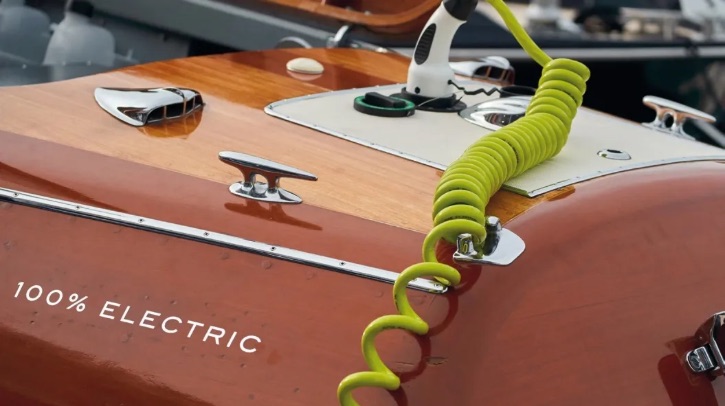Peering over the fence into the automotive industry, you might notice it is falling out of love with the idea of EV battery leasing. Perhaps that shouldn’t come as a huge surprise. The motivation for EV dealers to offer battery leasing was to mitigate the hysteria around battery life at the dawn of the EV revolution. Dealers used the battery lease model to soften the blow of the overall purchase price and give prospective owners reassurance in case the batteries did indeed die within the first year. Today, thankfully, there is clear evidence to debunk many of those battery myths and put an end to the hysteria. We know that these batteries are outlasting even the most optimistic forecasts in some cases.
Back in the marine industry, the mother of all energy transitions is building momentum, but prohibitive costs are slowing mass adoption. So, considering the battery of an electric vessel can typically account for a high percentage of the total cost of the electric propulsion system – and given the polluting, fossil-fueled, pay-as-you-go boating model we are used to – it’s easy to imagine that potential e-sailers would be incentivized by the option to purchase an electric boat with a similar pay-as-you-go battery lease plan.
For the industry’s early adopters of electrification, the initial lump sum investment has often been a hurdle. Many see it as a step too far, especially considering that a new electric vessel could very well have a smaller range than the combustion-powered boat it is intended to replace. To soften that considerable financial blow, signing up to a battery lease plan would enable owners to continue paying as they go.
Also consider that recreational boats typically run their engines for around 50 hours per year, ownership is, on average, 10 years and a vessel’s lifetime is around 25 years. It would be interesting to explore how battery leasing might fit into this ownership model.
For an electric boat, battery degradation is considered much in the way that hours of running wears a combustion engine. Battery degradation is affected by cycles, depth of discharge (DOD), temperature and even calendar aging.
These factors are well known and well documented, enabling an understanding of the liability a potential battery leasing business could help mitigate. The appeal for the vessel owner and/or operator is having an asset that only requires a monthly fee to enable its use.
One could also imagine the vessel’s owner being offered a battery upgrade, enabling the latest battery technology to be applied – and all the benefits that could bring in terms of improved safety and energy density, and the resultant increased range.
Battery leasing could be a fantastic accelerator for the uptake of electric propulsion systems and electric vessel construction. Propulsion system manufacturers would sell more product, helping to drive down costs and opening new opportunities in untapped regions and markets.
A battery lease company might also have a second-life plan for those batteries no longer able to be used in vessels – which would mean they could enjoy a full lifecycle and even have a clear route to being recycled and fed back into the system to produce new batteries. This would help formulate a circular economy, in line with the EU battery passport mandate.
Battery leasing no doubt comes with challenges to the leasing company, vessel owner, insurer and vessel purchaser. But I believe these may be mere formalities if the numbers stack up for all parties.
This article was originally publishing in the September 2024 issue of Electric and Hybrid Marine Technology. To view the magazine in full, click here.



